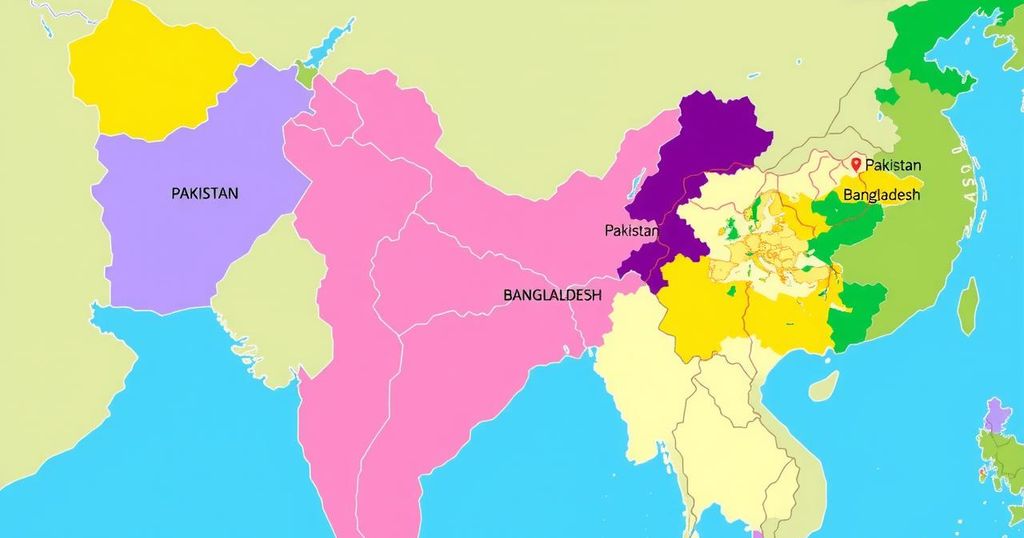President Trump has decided to cancel 83% of USAID programs, significantly impacting countries like Pakistan and Bangladesh. U.S. Secretary of State Marco Rubio confirmed this change, emphasizing that only initiatives benefiting the U.S. will continue. The move is expected to halt many projects and reduce financial support to these nations.
Recently, President Donald Trump announced a major shift in foreign aid policies, stating that the United States will no longer allocate funds through the United States Agency for International Development (USAID). U.S. Secretary of State Marco Rubio confirmed on X that 83% of USAID programs are being officially cancelled. This decision will adversely affect countries such as Pakistan and Bangladesh, which have traditionally received substantial annual aid under USAID.
The cancellation stems from a review process that has revealed significant inefficiencies. Rubio noted that approximately 5,200 contracts, worth billions of dollars, were previously signed globally, many of which did not align with America’s core national interests. In fact, some funds were perceived to have supported entities that acted against U.S. interests, necessitating this substantial cut.
Under the new directive, only 18% of USAID programs will continue, focusing solely on initiatives that also benefit the United States. According to Rubio, the decision was made after extensive discussions with Congress. Currently, under USAID, Bangladesh receives approximately $440 million, Pakistan $231 million, and Sri Lanka $123 million. The cessation of these funds will lead to the halting of various developmental projects in these nations, particularly those alleged to support anti-India activities in Pakistan and Bangladesh.
In summary, President Trump’s recent declaration to discontinue the majority of USAID funding underscores a shift toward a more self-interested approach to foreign aid. This decision prioritizes U.S. interests and prompts significant consequences for beneficiary nations like Pakistan and Bangladesh, which will experience funding shortages for developmental projects. The focus will now solely be on programs that provide reciprocal benefits to the United States.
Original Source: www.india.com






